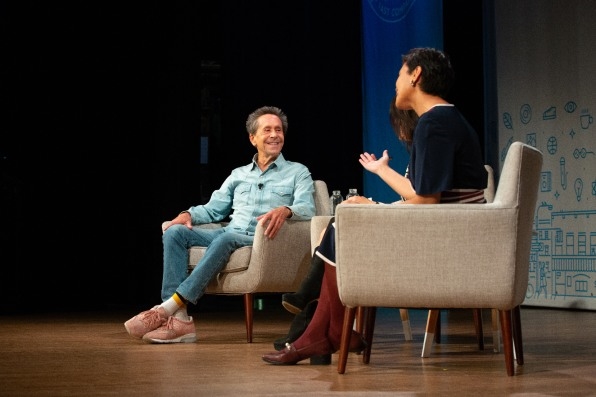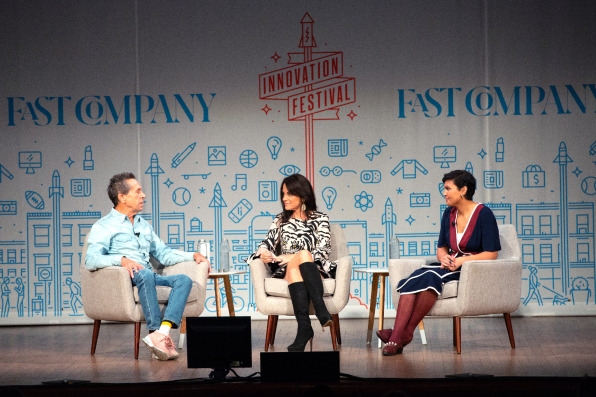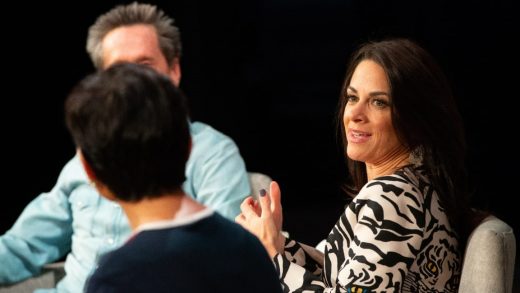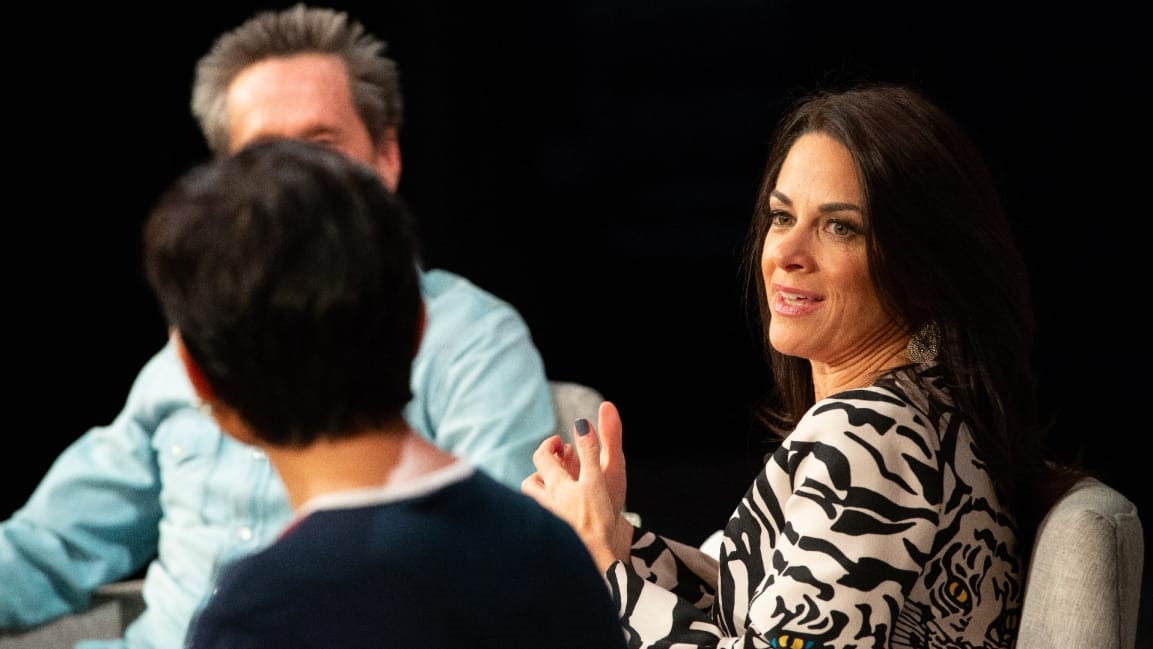How Albert Einstein, Picasso, and Elon Musk revived National Geographic TV
When Courteney Monroe, CEO of National Geographic Global Networks, wanted to reinvent its video programming, she turned to Imagine Entertainment, the production company founded by Brian Grazer and Ron Howard. Imagine is best known for films such as Apollo 13 and A Beautiful Mind, has produced a number of projects for National Geographic, including Breakthrough, a scientific documentary series featuring celebrity directors; Mars, an unusual scripted miniseries interspersed with interviews with space experts such as Elon Musk and Neil deGrasse Tyson; and Genius, a scripted anthology series that has so far told the stories of Albert Einstein and Picasso. Monroe and Grazer spoke at the Fast Company Innovation Festival about how shared values have shaped their relationship, and the content they’ve produced. Edited excerpts follow:
Monroe: We had dabbled in scripted movies. They were all based on Bill O’Reilly’s books, the Killing series: “Killing Kennedy,” “Killing Lincoln,” Who else did we kill? “Killing Jesus.” They were very successful in terms of ratings and it signaled to me that there was and advertiser demand, but we’d never done a scripted series with this vision that we had of really becoming a truly prestige, premium destination for content. Scripted is a natural part of that–Genius is our first one–but it’s still based on facts. Our first season of Genius was based on Walter Isaacson’s book biographies.

[Photo: Daisy Korpics for Fast Company]
Grazer: [Producing for National Geographic] was really seamless. I think it’s a function of [the fact] that National Geographic and Courteney, specifically, and Ron [Howard] and I share the same value system so we didn’t have to do anything corrective. We just did what interested us.
Monroe: I agree. [We did] what felt right for the brand and in service of the story, even under the guise of scripted drama, with great writing and great directing, great production values.
Grazer: I think what Courteney and we share is that we approached these with wonderment. We both said, “Einstein is perfect [for Genius].” It’s absolutely the right thing, but then we go, “Well, why is it the right thing?” [Viewers get to see that] everybody has a roadblock in life. Einstein had a roadblock, and you’re seeing the trajectory of a very interesting and unique life with lots of crises.
Monroe: I knew that what we were chasing and what we were ultimately were going to make was going to make everybody proud, but there was certainly an element of: Trust me.
Grazer: We found the perfect Einstein, Geoffrey Rush, an Oscar-winning actor, but we also had to have a young Einstein. We had two young movie stars who wanted to play young Einstein. Having been a producer for 30 years, it’s almost a reflex that, oh, the network or the studio’s gonna want the star. But we came across this kid who we thought was really good–Johnny Flynn–who was virtually unknown… And so I thought, oh, we’re going to have to hire the star. She’s going to make us do that. But it was like totally cool. [Courteney said:] “No, this guy is better.”

Monroe: The shared value system is so important. I really only want to work with partners that kind of share the ambition, understand intuitively what we’re doing, and want to do the same thing. I think that makes the perfect recipe. [Where we’ve had] the most debate and dialogue is deciding who the next Genius is going to be, because it’s such a high bar. We want to identify somebody who will have global relevance and resonance–somebody who can sustain 10 hours of television.
I felt very strongly that the third season of Genius had to [feature] a woman. We selected Mary Shelley, the author of Frankenstein. She was a radical feminist. She’s really amazing, a pioneer, and people don’t know her. And then Brian had this amazing idea: We’re trying to make it Aretha Franklin, I think we’ll still do Mary Shelley, but you’re going to try because we can develop many more than one idea. Albert Einstein was so on the nose for National Geographic and so perfect, but Genius is the bigger idea, and there are a lot of people who qualify as geniuses, and so it’s fun to kind of play in different spaces.
(22)



